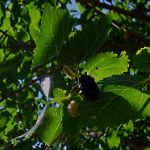Mulberry trees are ubiquitous in lots of places, including where I usually take pictures, yet most people probably, especially in urban areas, do not even know if they have ever seen one.
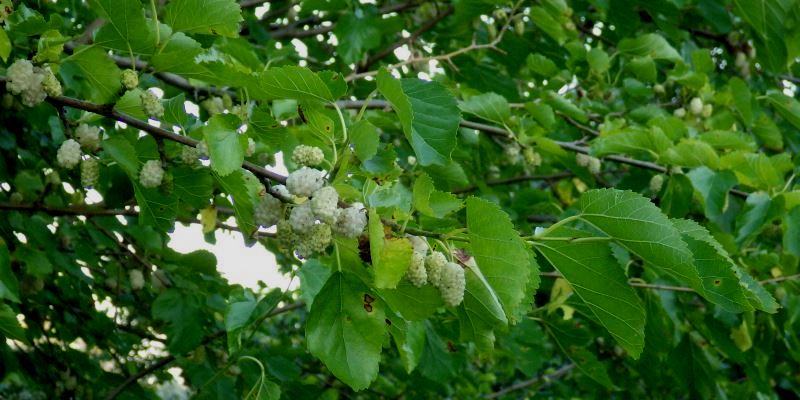
Mulberry tree (Morus sp.) in Hungary.
There are several species of mulberry trees, the white mulberry from China the black mulberry from south western Asia, and the red mulberry from North America being the most well known ones.
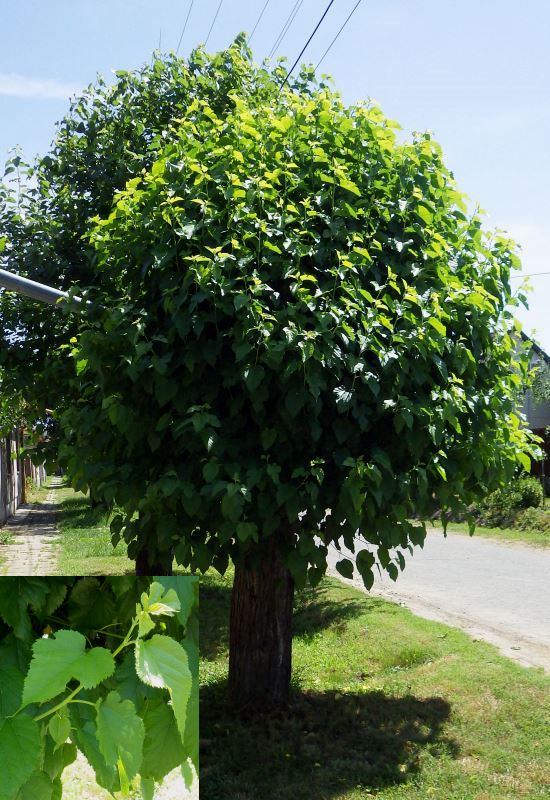
Mulberry tree in Hungary. It is common there to trim these trees the same way as black locust trees, i.e. let the trunk grow but cut off the branches and let new ones grow out of the trunk.
Mulberry trees seem to tolerate this well.
The mulberry fruits are edible and most people who tried them like them. Mulberry fruit can also be used for making brandy.
White mulberry trees are often planted to provide feed for silkworms in the silk industry. Caterpillars or several species of moth, not just silkworms, love to eat mulberry leaves and they can literally cover the tree in caterpillar silk and chew off all the leaves.
Mulberry wood is very hard and often used for making barrels.
Most of these pictures were taken in Hungary, but I have realized that in Toronto there are also mulberry trees growing right in my neighborhood.
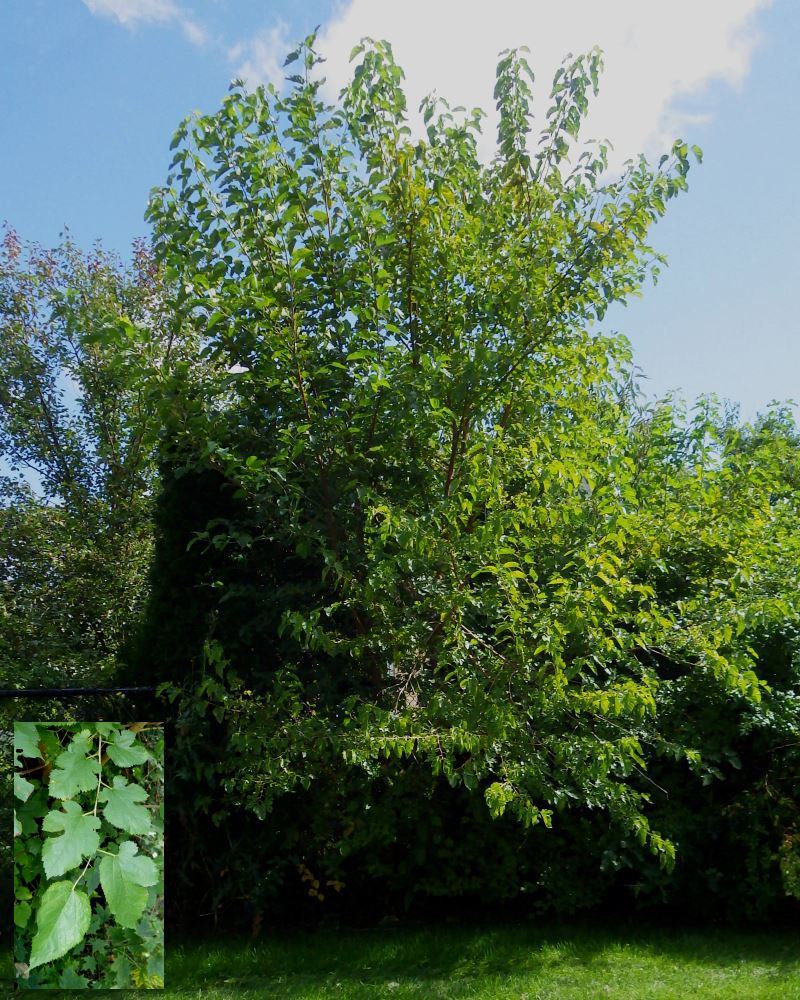
Young mulberry trees in Toronto.
While a mulberry tree can grow into a really large tree, most mulberry trees I have seen around here looked like shrubs, possibly grown from scattered seeds. There is one variety, however, the weeping mulberry tree, that seems to be planted in various places in gardens or just on people’s front lawns as an ornamental tree. Weeping mulberry trees are quite often trimmed to certain shapes. Occasionally weeping mulberry trees are left to develop naturally, growing a lush crown of leaves with branches reaching all the way to the ground, instead of the more common well-manicured ‘lampshade’ shape that people think weeping mulberry trees should have.
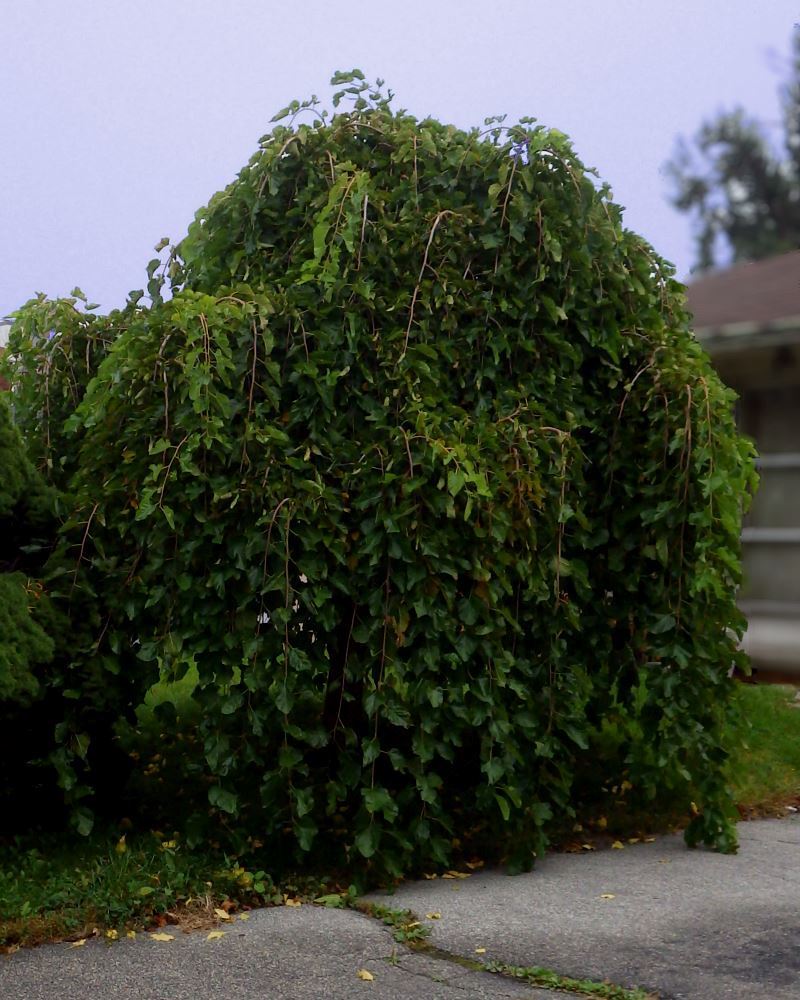
A weeping mulberry tree (Morus alba ‘Pendula’) growing in front of a house in Toronto.
These trees are often planted as ornamental trees, and quite often pruned so they somewhat resemble lamp shades. This tree was left to grow into a more natural shape.
Further Readings:
Mulberry.
Technique Tips: Pruning Weeping Mulberry.
Mulberries nutrition facts and health benefits


